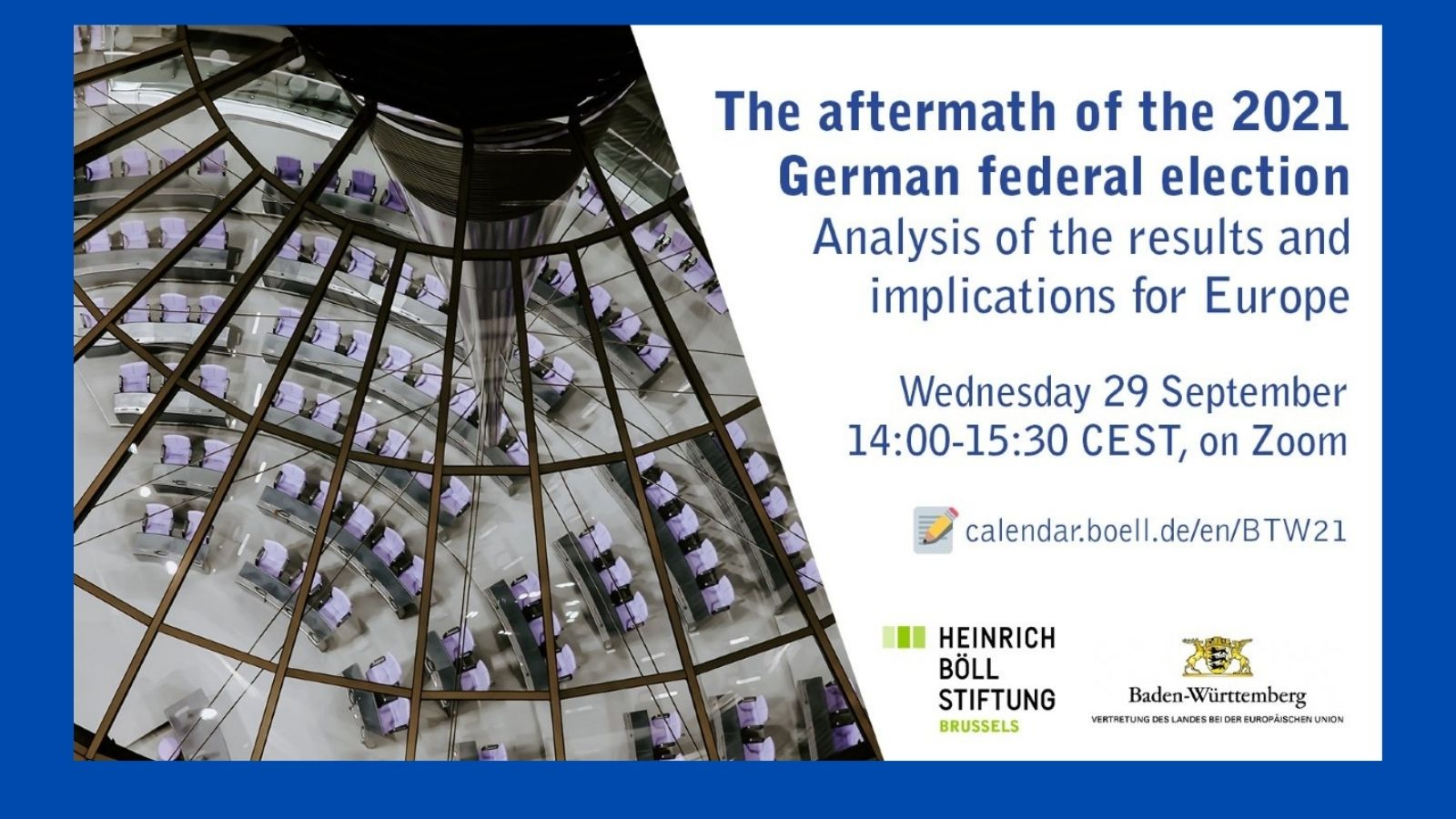The Aftermath of the 2021 German Federal Election - Analysis of the Results and Implications for Europe

Practical information
Themes and regions
Related centers and programs
On September 26, 2021, German Federal Elections will be held, and mark the end of the Merkel era. The political equation is likely to be complicated because of the possible combinations and the difficulty for political parties to achieve a stable majority. Important choices are at stake for the future of Germany.

Between the management of the Covid-19 pandemic and the health, economic and social recovery and to accelerate the fight against climate change. In this context, Europe and the World are watching this election with particular attention. Experts will address key questions about the election results and the implications for Germany's future role in Europe.
Welcome by:
Eva van de Rakt, Director, Heinrich-Böll-Stiftung European Union, Brussels
Analysis of results: seats, trends and shifts, as well as possible coalitions, by Stefanie John, Head of Political and Party Research, Heinrich-Böll-Stiftung, Berlin
Panel debate with:
- Dr. Franziska Brantner, Member of the German Bundestag and Spokesperson for Europe, Bündnis90/Die Grünen, Berlin
- Sven Giegold, Member of the European Parliament (Greens/EFA) and Spokesperson German Greens EP delegation
- Paul Maurice, Research Fellow, Study Committee on Franco-German Relations, French Institute of International Relations (ifri), Paris
- Tinne Van der Straeten, Minister of Energy, Belgian Federal Government, Brussels (invited)
Q & A with the audience
Moderation:
Méabh McMahon, Reporter, Euronews
Seminar jointly organized by the European Union offices Heinrich Böll Stiftung Brussels and the Representation of the State of Baden-Württemberg
The event will be held via Zoom in English with simultaneous translation
https://onscreen-pro.zoom.us/webinar/register/WN_4bW5zmlnTnW_dje34sdw2Q
Related Subjects
Other events

EV Supply Chains for Japan and Europe: Strengthening Economic Security
Economic security aims to ensure the resilience of supply chains for key industries: the case of electric vehicle production in Japan and Europe will be discussed.

From Ambition to Action: Exploring Technological Partnerships with India
The 16th EU-India Summit, held on January 27th in New Delhi with European leaders António Costa, Ursula von der Leyen, and Prime Minister Narendra Modi, marks a significant milestone in deepening EU-India relations. At the same time, official bilateral visits from EU member states are on the rise, including that of the French President, who visited India in February to participate in the Artificial Intelligence Summit. As India asserts its technological ambitions and seeks to reduce its dependence on China, Europe is stepping up its efforts to diversify its strategic partnerships.






